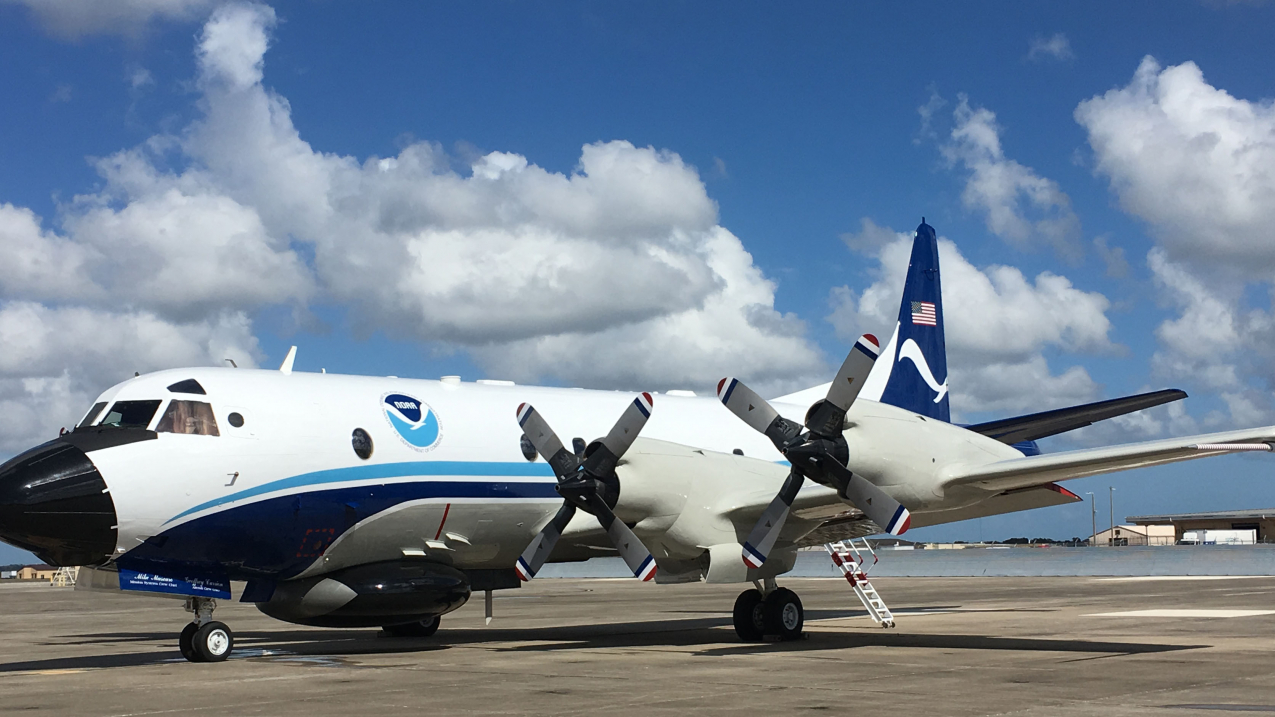NOAA has awarded a 10-year lease to the City of Lakeland, Florida, to house the NOAA Aircraft Operations Center at Lakeland Linder Regional Airport. AOC serves as the main base for NOAA’s fleet of nine specialized environmental data-gathering aircraft, including the agency’s three “hurricane hunter” planes.

NOAA Lockheed WP-3D Orion N42RF on 18 October 2016 following a major overhaul and upgrades. (Image credit: NOAA/Mike Mascaro)




